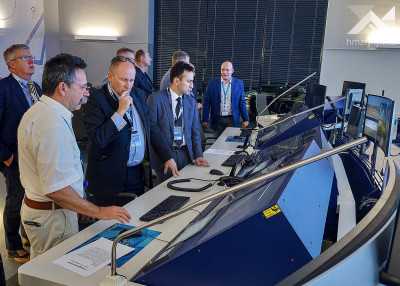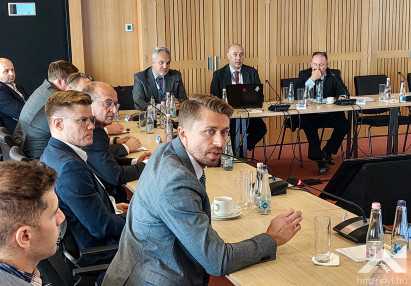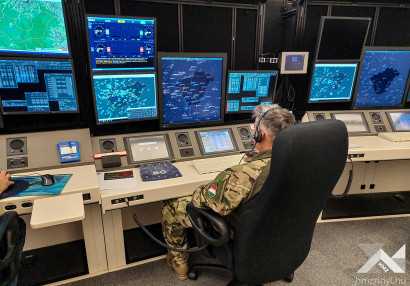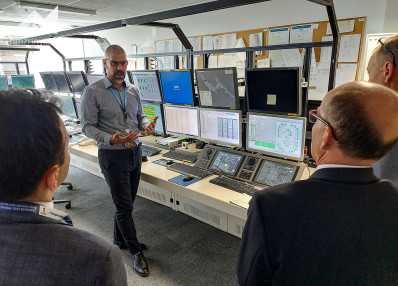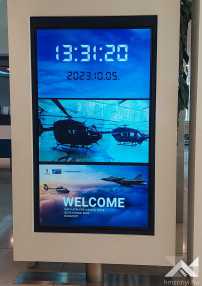NATO Air Traffic Management Advisors meet in Hungary
Text: Captain Gábor Horváth | Photo: Vendel Teszler | 11:41 October 9, 2023Drawing a great interest, the NATO Air Traffic Management CNS Advisory Group is holding its 2023 autumn meeting with the participation of air navigation experts from 22 nations in Budapest on 5-6 October. Having accepted our country’s offer, the group is meeting outside the Brussels headquarters of the North Atlantic Alliance for the first time in its history.
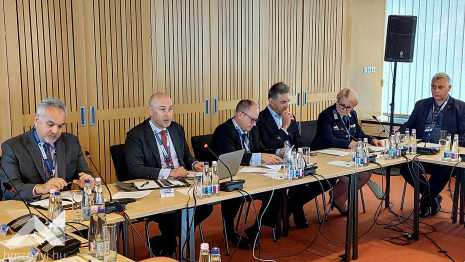
On the opening day of the event, the members of the NATO Air Traffic Management – Communication, Navigation and Surveillance Advisory Group (NATO ATM CNS AG) held their conference at the headquarters of HungaroControl – Hungarian Air Navigation Services Ltd. The guests were welcomed by CEO László Tóth on behalf of the Hungarian air navigation service provider, and by Colonel Alexandra Tóth Halászné PhD, Head of Department, Ministry of Defence State Aviation Department. The attendees received a brief update on Hungary’s air traffic situation, its air navigation tasks and developments, as well as on the military installations, equipment and the continuous renewal of the air force of the Hungarian Defence Forces.
Following the opening event, the participants discussed current military-related issues in air traffic management, communication, air navigation and surveillance in the spirit of adaptation to the changing security policy environment. Being held on NATO’s eastern flank, the event was lent special relevance by the Russo-Ukrainian War and what is becoming the state of a “new norm” in air traffic in connection with it. In the framework of this new norm, the states similar to Hungary should reckon on an increase in the volume of air traffic, since one of the most cost- and time-effective routes for aircraft avoiding the Russian and Ukrainian airspace leads through the Hungarian airspace.
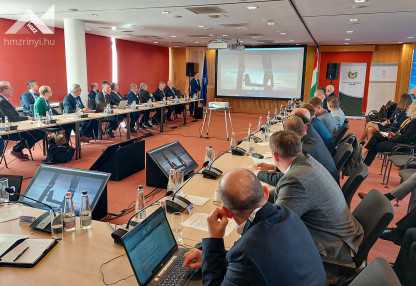
The NATO ATM CNS Advisory Group – that is now meeting in the capital of Hungary – is subordinated to the NATO Aviation Committee, which reports directly to the North Atlantic Council in issues related to air traffic.
“There are several fields in which we are a lead nation”, said Lieutenant Colonel Attila Paulov, Head of Division at the MoD State Aviation Department, ATM Supervisory Division, the Hungarian member of the NATO ATM CNS Advisory Group. “One such is the research and development related to Multi Remote Tower Control Systems. In essence, these systems allow us to monitor the traffic of aircraft at multiple distant airports from a remote location primarily via camera systems, and to control it from a standalone single hub, instead of conventional ATC towers. They are already widely used in civil life. One of these systems will be set up at the HungaroControl headquarters in Budapest. Remote tower control is not characteristically used in military environments, therefore we are also collaborating with HungaroControl to make its military version viable. In the framework of this working group, we share our results with the member states”, said Lieutenant Colonel Attila Paulov, who presented the Hungarian airspace management aspects of the Russo-Ukrainian War during the meeting.
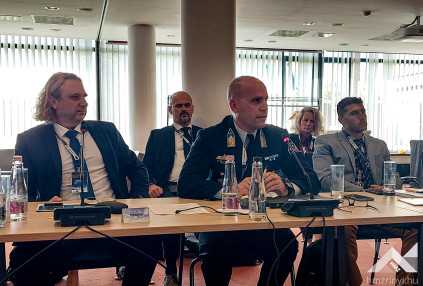
In the afternoon of the first day, the participants were given an insight into the work going on in the HungaroControl air traffic control room, where, besides guaranteeing the flight safety of aircraft flying in Hungarian airspace, the staff also manages the traffic of aircraft flying through the upper airspace of Kosovo. This is because as part of our support to NATO, Hungary, in particular HungaroControl, has been responsible for performing this task from Budapest since May 2014. Over the last few years, the Hungarian Defence Forces have developed close cooperation with the air navigation service provider in several fields.
“The airmen assigned to the HungaroControl headquarters work in the airspace management segment and the air traffic controller segment, and soon a number of volunteer reservists will also serve here, thereby contributing to the air navigation capability of the Hungarian Defence Forces”, told us Lieutenant Colonel Paulov.
The opening day of the Budapest meeting closed with an introduction to the Multi Remote Tower Control System; on the second day, the participants are to discuss military professional issues.
